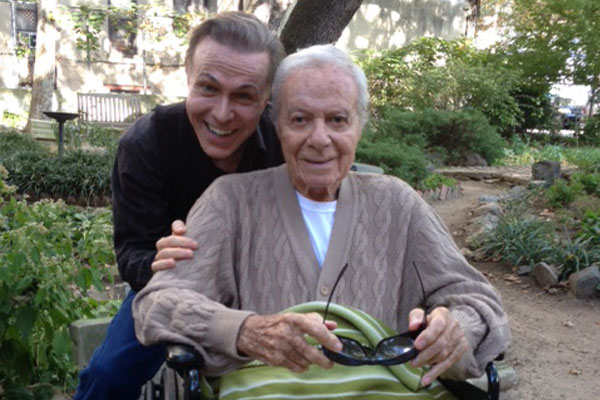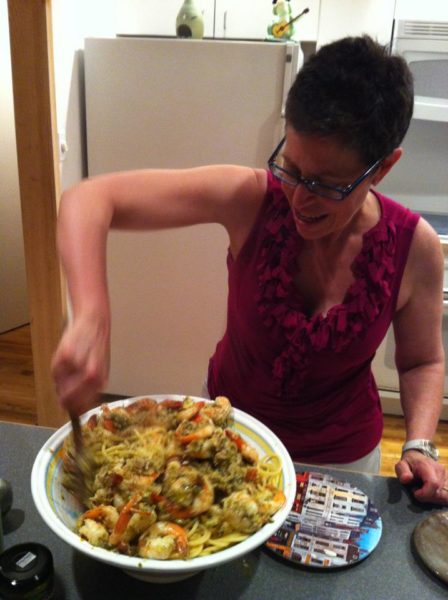Home Care Coordination

Customized Home Care Assistance (Wherever You Call Home)
It is often difficult to find good support in the home or at a senior living facility because every case is different and everyone’s needs are unique.
Aging With Dignity creates a profile of the client’s unique needs and personal preferences, which is used in the choice of personnel and delivery of services provided by a Certified Home Health Aide (HHA) working in a client’s home or a Certified Nursing Aide (CNA) at a facility. We work directly with these caregivers to provide them with the essential information to work best with the client. We are mindful to create a schedule of coverage which addresses the level of need required, but also recognize that this can be overwhelming, especially for someone who has never had any home care support.
Before the aide comes in the door, we help to create a profile of the potential aide – including personality and skills – which is discussed with the certified home care agency even before placement. This is the time to educate the client and the family as to what an HHA is expected to do and what is above and beyond their job description. It is important to note that the scope of responsibilities of a privately hired HHA may be broader than that of an HHA working with an agency. This is currently true with respect to medication management.
Services we provide:
- Determine how best to support the client in Activities of Daily Living (eating, bathing, dressing, toileting, transferring/walking and continence) and Instrumental Activities of Daily Living (shopping, cooking, laundry, medication reminders, etc.). There is a balance between supporting the client in terms of what they can do and automatically doing everything for them. Allowing them to perform as many activities as they are able reinforces their sense of purpose.
- Determine hygiene needs, including identifying issues with toileting, bathing, and preferences in terms of touch, temperature, need for privacy, etc. Also, determine the need for cuing due to incontinence – something that may not be initially obvious. We also make sure that if there was an issue of urinary tract infections (UTIs) that certain protocol be followed to prevent a reoccurrence.
- Determine how the client would like to be addressed.
- Determine how much the client likes to be engaged and interacted with.
- Working with an aide to ensure proper communication/engagement if the client is cognitively impaired and/or if communication is difficult due to stroke or other health conditions.
- Determine how directive a client is and/or cognitively compromised – is the client able to direct the caregiver and express their wishes or does the client need supportive cuing/direction? If a client has some cognitive deficits, it is sometimes important for the aide to be more directive throughout the day. It also requires finding a suitable aide who anticipates the client’s needs and provides reminders for appropriate times to eat, drink, go outside, etc. This is particularly important for a client who is more vulnerable and is not able to advocate for themselves.
Once an aide has been assigned/hired:
- Spend time during the first shift to ensure that the aide truly has the proper basic skills, including:
- Ability to safely transfer a client to and from a wheelchair, including recommending special cushions, foot supports, etc.
- Moving a bedbound client safely without shearing of the skin.
- How to prepare and serve meals (how best to plate, and what dishes, drinking glasses, and utensils to use – for example, a lighter glass or plastic one, using a spillproof top, do they drink with a straw, etc.) and the best time frame for meals and snacks.
- Making sure that an HHA is committed to be present during their shift and that their focus is on the client. It is never acceptable to have an aide be on their cell phone while with a client unless absolutely necessary or in an emergency.
- Help train the aide to work best with clients with dementia to offer choices between two things – for instance, “Do you want soup or a sandwich? Do you want to wear this outfit vs. that outfit?” The aide should avoid asking open-ended questions.
- Help support aides in how to best work with a client with dementia and/or depression.
- Recommend the purchase of apparel and durable medical equipment accessories to help both the aide and the client. For instance, if the client is bedbound and needs complete assistance for dressing, recommending resources for adaptive clothing. If the client is in a wheelchair, recommending special cushions for comfort/support, offer resources for apparel for inclement weather, tips which allow the aide to go outside hands free while pushing the wheelchair, and/or the purchase of a ramp to help with the wheelchair.
- Offer cooking/preparation help to the aides should the client need a special diet or special textures of food to prevent issues of aspiration, etc.
- Create a Customized Care Plan Binder for the home which includes:
- Contact information for important care providers, family members, friends, and community resources
- Contact information for medical providers and pharmacy information
- Instructions on what happens when a Personal Emergency Alert System (PERS) is activated and how to respond
- Current schedule of coverage and contact information for all the aides
- List of current medications
- List of Insurance information and current health conditions
- Folder containing Advanced Directives, including Living Will, Health Care Proxy form, and MOLST (Medical Order for Life Sustaining Treatment) form to have available in case of emergency
- Emergency protocol (what to do in an emergency and who to call)
- Petty cash log
- Restaurants and food stores that the client likes and could go to for their favorite food and/or meal
- Sample menus, favorite foods and beverage, and recipes
- How and where to obtain food – going food shopping, arranging for or ordering from a food delivery service e.g., Meals on Wheels, Fresh Direct, etc.
- Favorite activities, favorite neighborhood places (restaurants, food shops, retail stores, etc.), where the client likes to go for walks or be outdoors
- Daily schedule which includes time for medication, meals, activities, and downtime
- Daily log which includes any important information to share with the other aides, such as activities, mood, toileting, medications given, sleep, or appointments, need for supplies, or, most importantly, injury and follow-up care
- Schedule for grocery purchases and laundry
- Hobbies, activities that they enjoy/used to enjoy doing and try to accommodate these activities into their daily schedule
![Aging With Dignity NY LLC [logo]](https://www.agingwithdignitynewyork.com/wp-content/uploads/sites/217/2018/09/master-logo-NEW.png)

